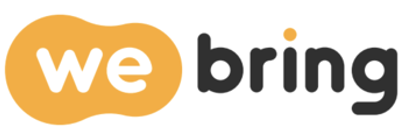What Motivated Me to Pursue an Foreign Internship in Korea
When I first decided to study abroad in Korea, my only goal was to improve my Korean skills and deepen my academic knowledge in my major. However, after actually coming to Korea, attending classes, and meeting a variety of people, I began to wonder more and more, “What is it that I truly want to do?” Around that time, I had the opportunity to attend a “Foreign Student Internship Info Session” held by the university’s career center, and I discovered that I could actually work as an intern at a Korean company. What fascinated me was that it wasn’t just about doing a part-time job—it was a chance to gain real-world experience directly related to my major and career path.
My major was Business Administration, and I had a strong interest in marketing. Naturally, I started looking up openings for internships in marketing departments at large companies or strategic planning teams at startups. What motivated me most was the desire to apply the theoretical knowledge I had gained through academic studies in a real business environment. I also believed that learning firsthand about Korean corporate culture—how it’s different from abroad and how professionals approach their work—would be an invaluable experience that no textbook or lecture could ever provide.
Understanding Internship Opportunities and Recruitment Channels
The process of finding an internship was more structured than I initially expected. Generally, Korean companies hire interns through two main approaches: open recruitment and rolling recruitment. Open recruitment is often used by major corporations and public institutions, following a fixed hiring schedule that typically involves document screening, a written test or AI competency test, and interviews. At first, I only targeted large companies, but I faced challenges due to tight application deadlines or strict requirements.
However, many mid-sized companies and startups used a rolling recruitment system. They often posted internship openings on recruitment websites, their own company websites, or through university career centers. Occasionally, I would come across internship positions on job platforms like LinkedIn or Wanted. Since a good number of companies welcomed international talent, I had broader opportunities to apply by leveraging my ability to use both Korean and English. The most important thing was “to figure out in advance how the companies or roles I’m interested in recruit interns.” To do this, I frequently checked the careers section of company websites and gathered information through alumni and international student communities.
Preparing Application Documents
To apply for an internship at a Korean company, a resume and a self-introduction letter (cover letter) were usually required. In the case of foreign applicants, some companies also asked about visa status, Korean proficiency (e.g., TOPIK scores), or English test results (like TOEIC or TOEFL). I held a D-2 visa and had a TOPIK Level 5 score, so I made sure to clearly indicate that at the top of my resume.
The resume had to be concise yet deliver essential information. Korean-style resumes often include a photo, although some companies now accept resumes without photos due to blind recruitment practices. I reviewed each job posting carefully to decide whether to include a photo. In the self-introduction letter, I included specific anecdotes about past projects or club activities, and the background of how I developed an interest in marketing. Above all, I focused on addressing two key questions in detail: “Why this company?” and “What strengths can I bring to this position?”

Interview Experience and My Personal Tips
After passing the document screening, most companies required me to go through a first-round interview. Many mid-sized companies and startups conducted them online, while large corporations tended to prefer face-to-face interviews. The most common questions I was asked during interviews were “How do you plan to apply your academic experience in Korea to your work?” and “How will you utilize your Korean and global communication skills?” Since I was a foreigner, I was also frequently asked about my Korean and English abilities and cultural understanding.
If I had to share some interview tips, the first would be to “describe your experiences using specific numbers or measurable achievements.” For example, if I managed an SNS marketing project in a student club, I didn’t just say “I participated,” but rather “I increased the number of followers by more than 30%.” The second tip would be to “demonstrate your understanding of Korean corporate culture.” To prepare, I thoroughly read each company’s website, focusing on sections like company culture and mission, and I also followed their press releases and social media accounts to stay updated on recent topics.
My Internship Experience: From Application to Acceptance
The company I applied to was an IT-based startup looking for an intern in the service marketing team. They were interested in entering the global market and gave preference to international students and foreigners, which caught my attention right away—so I applied without hesitation. After successfully getting through the document screening and the first-round online interview, I became extremely nervous before the second, in-person interview. The interviewers asked very practical, work-related questions. One example was, “If you were to plan a specific marketing campaign, what kind of content strategy would you use?”
Although I was initially caught off guard, I managed to present my ideas briefly based on what I had learned in school about consumer behavior and digital marketing techniques. Fortunately, the interviewers found my ideas interesting. Most of all, they valued the fact that I could switch fluently between Korean and English in communication. That was a key factor in receiving my acceptance letter. After getting accepted, there was a follow-up process involving contract confirmation and visa validation. I also got approval from my academic advisor to receive internship credits. Ultimately, I gained valuable experience working on actual projects over six months and expanded my potential for landing a full-time job in Korea after graduation.
Lessons Learned from the Internship
The biggest takeaway from my internship was developing a true “sense of real-world work.” The process of facing various situations that I could never encounter in a classroom was incredibly rewarding. I learned a lot about the company’s decision-making process, collaboration dynamics among team members, and how to give presentations to supervisors. Furthermore, the time spent thinking about how I should position myself within the organization as a foreigner was very meaningful. I realized how crucial it is to communicate well, recognize cultural differences, and turn those differences into strengths.
Advice for Future Internship Seekers
To those who are considering applying for internships at Korean companies, my first piece of advice is to “clearly identify the type of role and company you want.” Rather than applying just because a certain company is famous or because others are applying, it’s much better to first reflect on what area you want to thrive in. After that, research the latest industry and company trends, and then clearly articulate what value you can bring to the table.
Also, more Korean companies than you might expect are actively considering foreign interns. This is due to the growing belief that cultural diversity is a competitive advantage. So, if your Korean proficiency isn’t perfect, be prepared to show tangible proof of your efforts, like your TOPIK scores or other study records. Also, prepare for English interviews, just in case. Lastly, remember that internships are a “safe space to make mistakes and learn.” Instead of trying to be perfect from day one, remain eager to learn even from small tasks, and maintain a positive, proactive attitude toward your team—you’ll likely see great outcomes in return.

K-Name Studio: Create your perfect Korean name based on your personality and style.
What’s My K-Beauty Personal Color?
WeBring Service : Provides personalized services to foreigners living in Korea
Exclusive offer: Introducing foreign car rental in Korea, WeBring-SoCar

